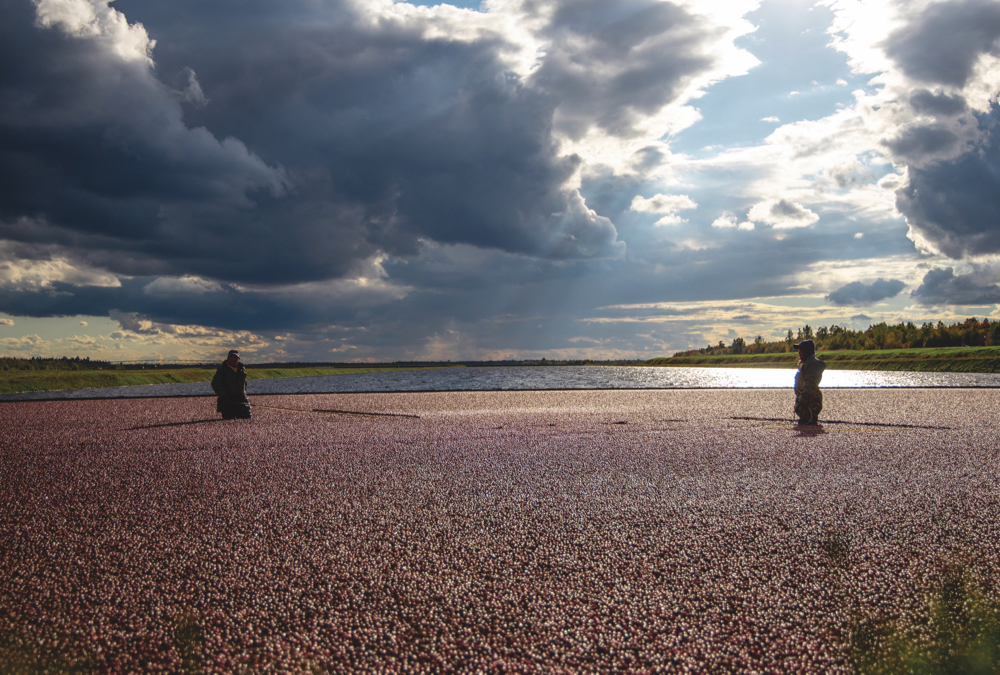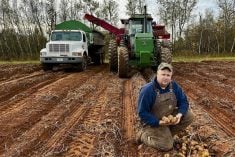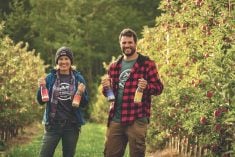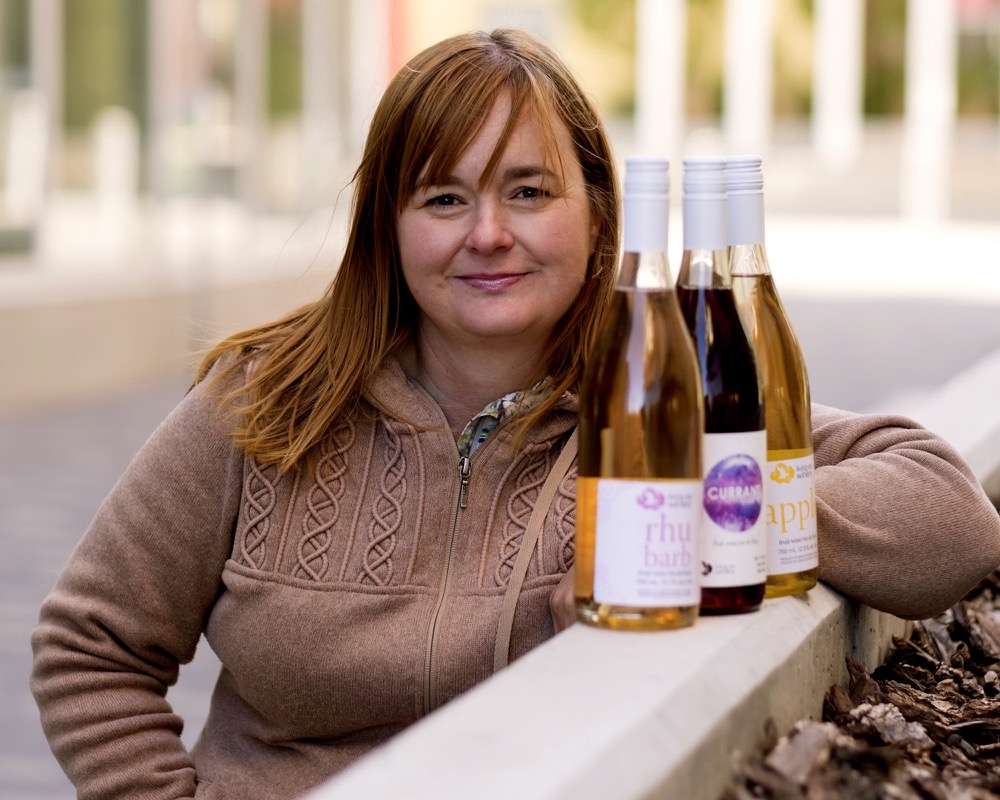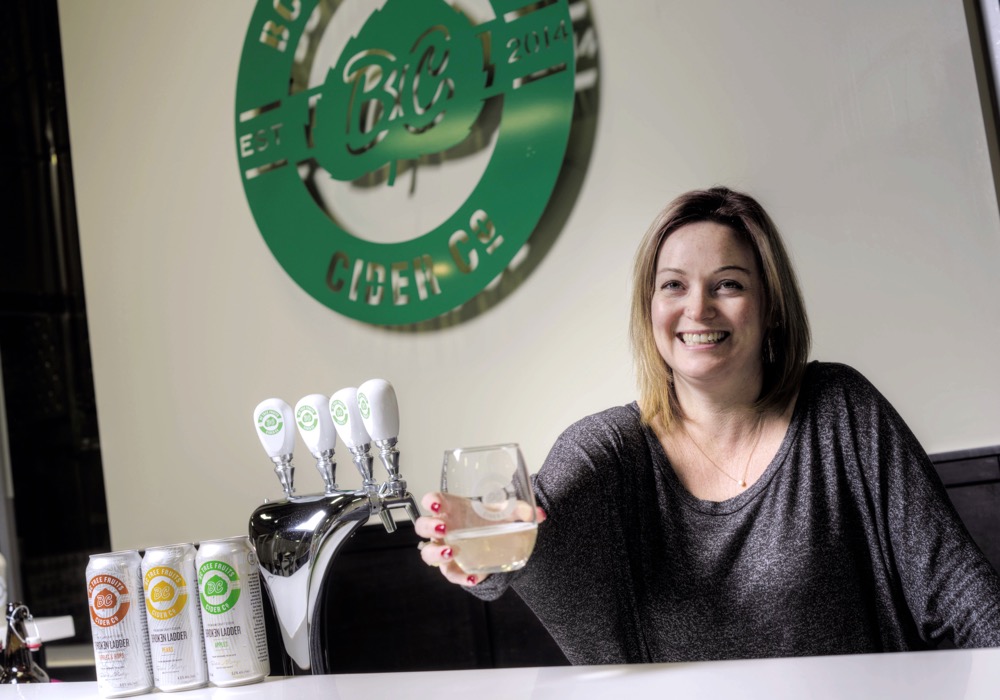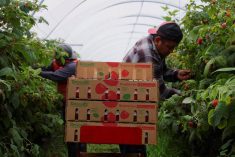When he was eight years old, Marc Bieler knew that when he grew up, he would be a farmer. What he didn’t know was that his road to fame and fortune would be paved with little red berries.
Today, Bieler Cranberries Inc. is the largest single-site cranberry farm in Canada producing up to 40 million pounds of fruit a year, and its founder and president is recognized as Canada’s Cranberry King.
The road to this achievement, however, was not a straight line. Along the way, Bieler encountered detours, new opportunities and changes of plans — all fueled by a passion for the land and an entrepreneurial spirit.
Read Also
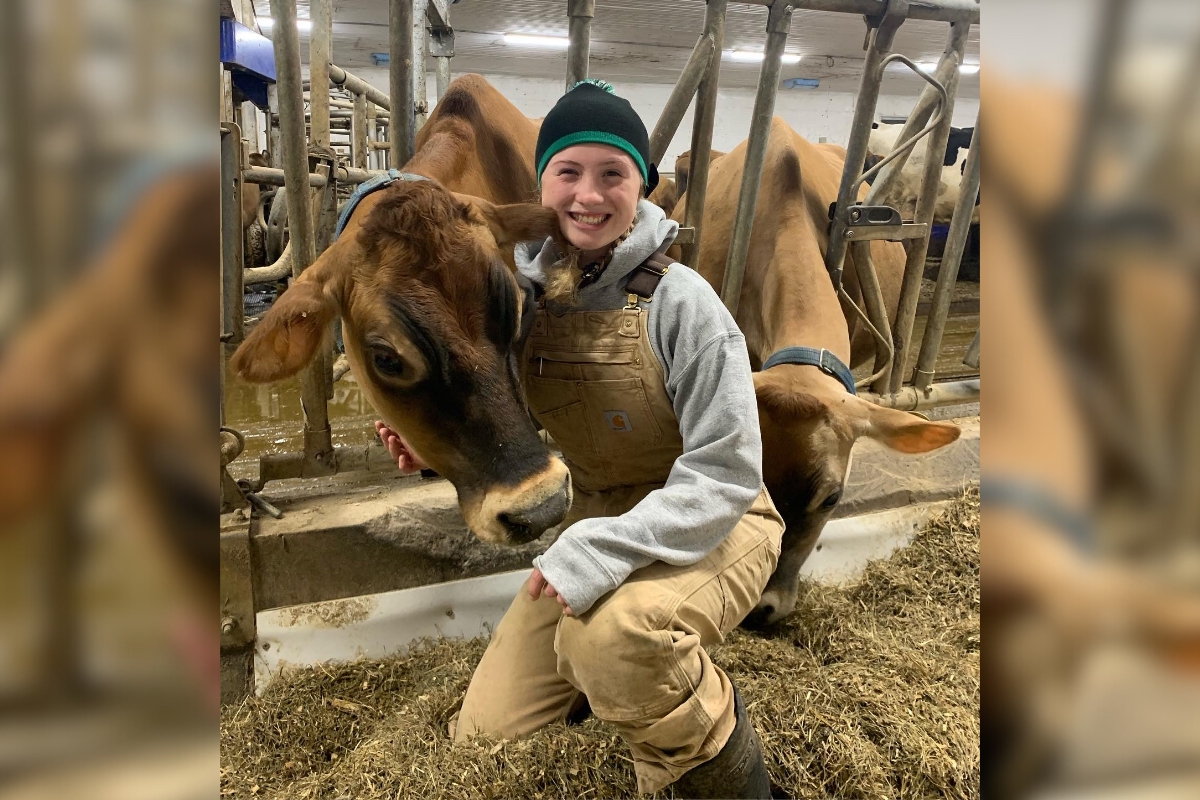
Youth focused on keeping Quebec’s dairy industry strong
In part two of our Making the Future series, Country Guide spoke with Béatrice Neveu from Rawdon, Que. (Read part…
Marc Bieler launched Bieler Cranberries Inc. in the early 1980s in Saint-Louis de Blandford on the south shore of the St. Lawrence River, about 90 kilometres west of Quebec City. His story, though, begins in Switzerland.
Prior to the Second World War, Bieler’s father, a Canadian lawyer, and his Swiss wife were living in Switzerland, where he was working as the assistant treasurer of the League of Nations. When the senior Bieler was approached to become deputy minister of finance for the Province of Quebec, the family moved to Quebec City. “After the war, we went back to Switzerland almost every summer,” Bieler recalls. “My mother’s family property had a farm on it. I liked going there way better than playing croquet or tennis. That’s where my passion for agriculture began.”

Although French was the family’s first language, their move to a province where the Roman Catholic Church controlled the education system meant the five Protestant Bieler brothers attended English schools and, as a result, are totally bilingual.
Graduating from high school, his parents urged him to get a degree. He had other ideas, opting for the two-year farm diploma course at McGill’s Macdonald College, considered an ideal choice for anyone wanting to farm. Graduating at the top of his class, he spent the next couple of years working on large farms in Ontario and Western Canada, realizing along the way that he wanted his own business which would require both capital and a university degree.
That meant a change of plans.
McGill was again his choice for a bachelor of commerce degree, which he received in 1964. “I have always had a great love for McGill,” he says. “My grandfather, the Rev. Charles Bieler, was a professor of theology there. Four generations and eight members of the Bieler family have attended McGill, including my wife Marie, also an agriculture graduate.”
Throughout his career, he and his brother Philippe, who worked in the financial sector in New York, purchased several properties, gradually amassing enough capital to take them from one project to another, bigger one. The first, was a 150-acre “hill farm” in Vermont which they bought in 1962 for $9,000.
Armed with his degree, Bieler was was hired by Continental Grain — trading grain all over the world, working in Winnipeg, Vancouver, Minneapolis and then New York City. It was exciting at times, he recalls, but after four years, the yearning to live in the countryside hadn’t diminished. Life in the Big Apple had.
Time to move on.

He returned to Quebec to work for the provincial department of agriculture which provided him with a scholarship to study urban and regional planning at the University of Montreal. “It was a diverse program,” he says. “I was more interested in the regional planning aspect.” One course in particular, taught by Dr. Pierre Dansereau, considered “one of the founders of the science of ecology,” opened Bieler’s eyes to the importance of the balance of nature and the potential of the climatic disaster that we face today. With a masters degree now on his resumé, he went to work for a large municipality near Montreal, still yearning to live and work on a farm of his own.
Time for a change.
With the profits from selling his share of the Vermont farm, Bieler purchased an apple farm in Quebec’s Eastern Townships. He continued commuting to his city job while running the farm and getting involved in local farm organizations. When an opportunity arose to buy another apple farm with greater potential, he turned to Farm Credit for financing, left the city job and became a full-time farmer. By 1980 he had three farms, with “quite a business going.” That business included a small factory, processing apple juice plus grapes from Niagara and experimenting with blends.
In the winter of 1981, a huge storm was followed by a long February winter thaw, then an improbable plunge in temperature, caused massive damage in the orchards. “One day to the next, we lost 30 to 40 per cent of our trees,” Bieler relates. With his orchard devastated, he made a decision. Maybe other farmers would replant and rebuild, but that wasn’t the kind of action that Bieler thrives on. “I knew apples weren’t my future,” he says. “I began to look for another crop.”
Serendipitously and simultaneously, his brother Philippe learned that a Baltimore, Maryland company selling various private label food products, including maple syrup, was for sale. An uncle who wanted to buy the brothers’ share of the family’s Swiss property provided them with the capital to make the purchase and then succeed at selling maple syrup and his apple juice into the U.S.
Their U.S. distributor told him, “What we really need is an apple/cranberry blend.”
Cranberries were beginning to be touted as a health food. The market was already good, but it was controlled by Ocean Spray and there wasn’t a berry to be had to blend with his apple juice. “That’s what got me going. There has to be some good come out of this,” he said.

Change of plans.
That he didn’t know much about growing cranberries was not a deterrent. As with everything that Bieler has undertaken, he has never been afraid of hard work. He researched meticulously, sought out top-notch consultants, even making one of them a partner in this new company.
He engaged a trusted U.S. fertilizer producer, whose biggest customers were cranberry growers, to provide site advice, the cranberry being an extremely site-specific plant. They travelled extensively through rural Quebec, discovering that the best cranberry-growing region of Canada was in the Centre-du-Québec region.
Contrary to popular belief, the berries do not grow in water, but require low-lying fields with very acidic, clay soil capable of holding water, with nearby water sources for flooding the basins at harvest time. Harvesting is accomplished by gently agitating the plants once they are immersed in water. A giant beater crosses back and forth and loosens the berries, which float to the surface, creating the immense, red-carpeted view at harvest time.
Bieler bought 500 acres from the Quebec government. It was considered unfit for agriculture. The price? $50 an acre. Today, though, the farm has grown to 1,500 acres that are drained, irrigated and producing those 40 million pounds of cranberries.
The story of Bieler’s remarkable career is that at stages when he could have plateaued, he kept on growing even though that meant it would be several years before he had revenues. “At the outset, we had to have the right techniques in how to design and build the fields,” he explains. “That’s where the other consultants came in. When we realized we had the right conditions to get better yields than other regions and we had some volume, we found buyers who were doing private label juice. They became our customers. As volume increased, we decided to invest in processing.”
New direction.

In 1988, Bieler Cranberries established a processing arm called Atoka, (the indigenous name for cranberry). It started off slowly, building up over the years, with substantial annual investments in the best equipment, with a capacity of 50 million pounds of cranberries annually.
Bieler credits his success to “organization. You have to make good decisions. You need good consultants. Not everything works the way you want it to and when it doesn’t, you have to adapt quickly. You have to have a good solid team — the right kind of well-trained people. I have always been fairly thrifty, just spending what I had to. This helped in getting the necessary funding along the way.” He also takes time to be on the land, taking care of the day-to-day things required for sustainable agriculture. “That’s one of the strengths of our business,” he asserts.
Time for a change.
In 2018, Bieler sold the processing division of his company to Ocean Spray, while retaining the cranberry growing operation. “Agriculture is one thing. Processing and marketing are another skill set,” he says. “The farming side was doing well, the processing company, despite the volume, was only breaking even. With the sale, we became farmer owners of the Ocean Spray Cooperative. It is a very good partnership for both and makes a huge difference in how we manage things.”
The sale of Atoka resulted in a substantial capital gain and gave Bieler an opportunity to make a significant contribution to a cause near to his heart — the world’s pressing ecological problems. As someone whose career has connected him to the land, he understands the need to find solutions to environmental pollution, climate change and the extinction of plant and animal species. In October 2020, his landmark $15 million gift to McGill University’s School of the Environment (renamed the Bieler School of Environment) will, in the words of university principal, Suzanne Fortier, “translate new knowledge into solutions that will have real and lasting impact on our world for generations to come.”
Bieler has always been an ardent supporter of his alma mater, serving for years on the dean’s agriculture advisory board. “He is a humble man,” one colleague says of him. “He shines in a room, just being himself. Sitting around a table at a meeting, he is his unassuming, casual self, and when he speaks, it is to say something strategic and smart. I am always impressed at how intelligent he is and how down-to-earth giving the message.”
With more farmers wanting to make significant charitable donations, we asked Bieler what he learned that might be helpful to others. Was this a family decision? “I talked to Marie a lot and my children knew all about it; however, they left the decision up to me. I considered this more than a gift; it was an investment in the future of our planet. It also allowed me to set up a foundation to direct funds to a worthy cause rather than simply paying taxes. Anyone considering this needs to get good advice from competent fiscal planners.”
At 82 years, Bieler can’t see himself fully retiring. He is, however, restructuring the company, bringing in people so that he won’t be doing all of the day-to-day work he’s always done and so that he will be able to spend winter months in Switzerland. Over the years, Marie and each of his five children have worked in some department of Bieler Cranberries Inc. Will one of the next generation want to take over? “We are waiting to see,” he says philosophically. “I followed my passion and that’s what I have taught them.”

